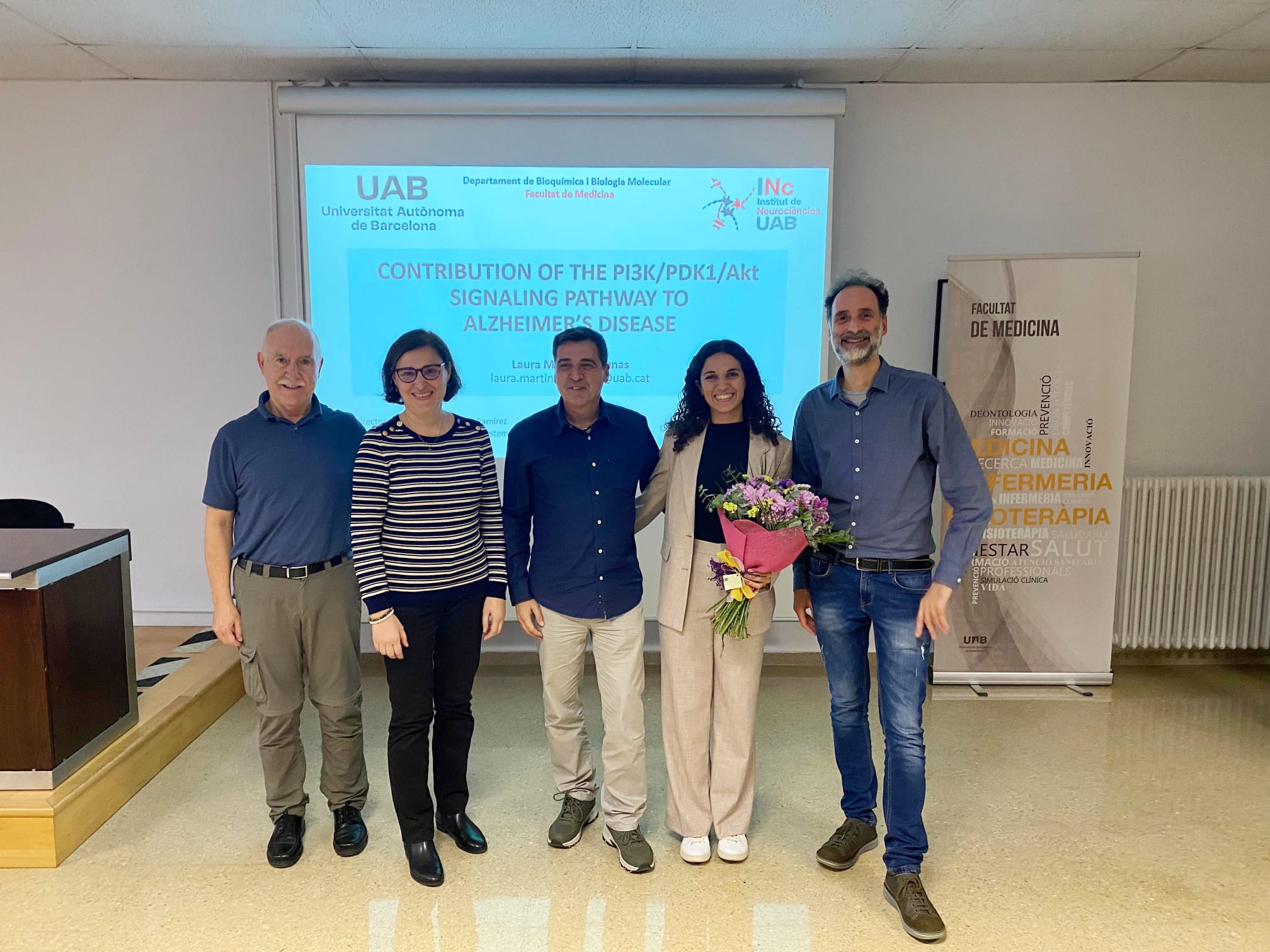A PhD experience: Dr Laura Martínez
"My thesis focused on the PI3K/PDK1/Akt signaling pathway, which is hyperactivated in the brains of Alzheimer’s patients".

Alzheimer's disease is the most common neurodegenerative disorder, characterized by the progressive loss of neurons in brain regions responsible for memory, language, and thinking. Over time, neuronal damage extends to areas involved in basic biological functions, such as walking or speaking, leading to cognitive, behavioral, and functional decline. Although these symptoms are new to the affected individual, it is believed that the brain changes causing them begin 20 years or more before symptoms appear.
Currently, seven drugs have been approved for the treatment of Alzheimer’s, but none of them target the underlying brain changes or alter the course of the disease. Cellular signaling cascades, which can be described as "a chain of proteins that activate or deactivate each other", play a critical role in most cellular processes and are considered promising therapeutic targets for designing drugs to halt Alzheimer’s progression.
My thesis focused on the PI3K/PDK1/Akt signaling pathway, which is hyperactivated in the brains of Alzheimer’s patients. Specifically, my project aimed to identify the benefits of inhibiting Akt using MK2206, a drug already approved for cancer treatment.
Akt is a key protein due to its critical role in metabolism, proliferation, growth, and cell survival, making it a major therapeutic target in cancer and neurodegenerative diseases.
Based on previous results from the laboratory, partial inhibition of Akt could protect mice against Alzheimer’s disease, safeguarding their neurons from inflammation and stress induced by protein toxicity, which has been a central focus of my research.
In Alzheimer’s-affected brains, misfolded proteins accumulate, causing cellular stress and triggering a cellular response called the "Unfolded Protein Response" (UPR). To study the UPR, we used a cellular model treated with tunicamycin, a commercial compound that induces this response. In these experiments, we observed that tunicamycin reduces cell viability by halting division and normal activity, but without killing the cells, as they continue performing essential vital functions.
As I mentioned, Akt was the main target of this thesis. We discovered that treatment with the inhibitor MK2206 restored the phenotype of cells affected by tunicamycin, reducing the UPR and reversing the cell cycle arrest.
We then advanced to in vivo models, analyzing samples from Alzheimer’s model mice. Surprisingly, the neurons of these mice showed increased levels of Akt activation and UPR markers, suggesting that hyperactivation of Akt is associated with increased UPR in Alzheimer’s brains.
At this stage, the thesis took a new direction. I had the opportunity to collaborate with a laboratory in Paris, where I conducted a three-month research stay. There, apart from enjoying croissants and a beautiful city, I studied the role of Akt in the inflammatory response, in collaboration with Dr. Schneider’s lab, where I was warmly welcomed. We discovered that Akt modifies the phosphorylation levels of an important inflammatory factor (NFκB), without affecting its activity or causing genetic changes.
All these findings suggest that Akt worsens the effects of Alzheimer’s disease and that its partial inhibition could be a promising therapeutic strategy to mitigate neuronal loss. These discoveries bring us one step closer to a potential cure for Alzheimer’s, a disease that is sadly all too common in our lives. However, achieving this will require many more hours of research.
Through this thesis, I take with me wonderful experiences and people, and leave behind a small contribution to scientific research, with the hope that the passion for science and discovery will never fade. As Marie Curie said: "Nothing in life is to be feared, it is only to be understood. Now is the time to understand more, so that we may fear less".
Laura Martínez